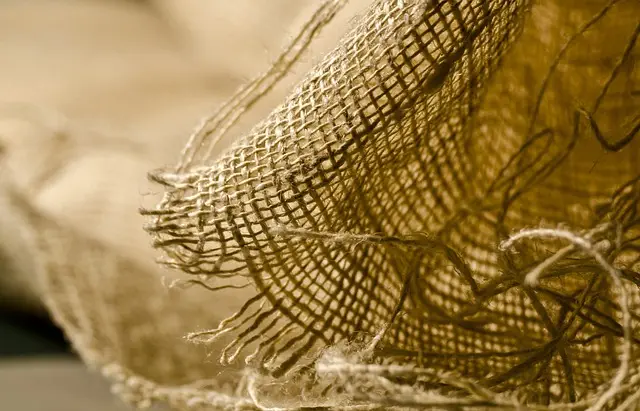Kratom, a plant from Southeast Asia, has been explored for its potential role in providing muscle soreness relief through its active compounds mitragynine and 7-hydroxymitragynine. These alkaloids interact with opioid receptors to deliver pain relief, with some users reporting effective relief from strains like Maeng Da and Bali. While the full mechanism of action is not yet fully understood, kratom's analgesic effects are being studied for their potential in managing both acute and chronic muscle soreness. However, it's crucial to approach its use with caution due to its complex effects and possible side effects. Users should consult healthcare professionals before using kratom for muscle soreness relief, taking into account individual health conditions and the risk of medication interactions. The scientific research on kratom is ongoing, highlighting its anti-inflammatory potential through interactions with the endogenous cannabinoid system and opioid receptors, which may inhibit inflammatory cytokines. For those considering muscle soreness relief with kratom, a measured approach that includes proper dosing, dietary considerations, and hydration is recommended to optimize its effects and ensure safety and efficacy.
Muscle soreness can be a persistent challenge for many, often requiring effective and sustainable relief solutions. This article explores the potential of kratom supplements as a natural approach to alleviating such discomfort. Delving into the scientific underpinnings, we uncover how kratom’s anti-inflammatory properties may offer significant muscle soreness relief. Additionally, practical insights are provided on how to seamlessly incorporate kratom into one’s wellness regimen for optimal benefits, ensuring a comprehensive understanding of its role in mitigating soreness.
- Understanding Kratom's Role in Mitigating Muscle Soreness
- The Science Behind Kratom's Anti-Inflammatory Properties
- Integrating Kratom into Your Wellness Routine for Optimal Muscle Soreness Relief
Understanding Kratom's Role in Mitigating Muscle Soreness

Kratom, a plant originating from Southeast Asia, has garnered attention for its potential role in mitigating muscle soreness. The alkaloids present in kratom leaves, primarily mitragynine and 7-hydroxymitragynine, are believed to interact with the body’s opioid receptors, which can lead to pain relief effects. Studies have suggested that these compounds may help in managing pain associated with muscle soreness, potentially due to their analgesic properties. Users often report muscle soreness relief with kratom when incorporated into their routine, attributing this effect to specific strains like Maeng Da or Bali. The mechanism by which kratom exerts its effects is complex and not entirely understood; however, its role in modulating pain perception makes it a subject of interest for those seeking natural alternatives to manage soreness from intense physical activities or chronic conditions.
For individuals experiencing muscle soreness, the use of kratom supplements should be approached with caution. While anecdotal evidence supports its efficacy, scientific research is still evolving. It’s crucial to consider dosage and strain variety, as these factors can influence the level of relief experienced. Moreover, kratom’s interaction with the body’s pain reception and its potential side effects necessitate a responsible approach to its use. Those interested in exploring kratom for muscle soreness relief should consult healthcare professionals to ensure safety and appropriateness, especially if they have pre-existing health conditions or are taking other medications.
The Science Behind Kratom's Anti-Inflammatory Properties

Kratom, a plant from Southeast Asia with the botanical name Mitragyna speciosa, has garnered attention for its potential anti-inflammatory properties. The science behind kratom’s ability to alleviate inflammation is rooted in its interaction with the body’s endogenous cannabinoid system and opioid receptors. Alkaloids found within kratom leaves, such as 7-hydroxymitragynine and mitraphylline, are believed to influence these systems, leading to a modulation of inflammatory responses. This mechanism may offer muscle soreness relief with kratom, which has been anecdotally reported by users engaging in physical activities or those suffering from chronic pain conditions.
Research has indicated that these alkaloids can inhibit the production of pro-inflammatory cytokines, which are proteins important to the signaling of inflammation within the body. By modulating these cytokines, kratom may help reduce the inflammation associated with various conditions and injuries. Clinical studies have shown promise in the use of kratom for inflammatory disorders, although more research is needed to fully understand its efficacy and safety profile. Users interested in exploring kratom as a supplement for muscle soreness relief should consult healthcare professionals to ensure it is appropriate for their individual health needs and to discuss proper dosing and potential interactions with other medications.
Integrating Kratom into Your Wellness Routine for Optimal Muscle Soreness Relief

When incorporating kratom into your wellness routine for optimal muscle soreness relief, it’s crucial to approach its use with a strategic and informed mindset. Kratom, a plant-based supplement derived from the leaves of the Mitragyna speciosa tree, has been traditionally used for its potential pain-relieving properties. For those experiencing muscle soreness, whether from intense exercise, injury, or daily physical activities, kratom strains such as Maeng Da and Bali are often favored due to their alkaloid content, which includes mitragynine and 7-hydroxymitragynine—compounds that may help in managing discomfort. To integrate kratom effectively into your routine for muscle soreness relief, start by considering the dosage; a moderate amount typically yields benefits without overstepping safe usage thresholds. It’s also important to maintain a balanced diet and stay hydrated while using kratom, as these factors can influence its efficacy and your overall well-being. Additionally, pairing kratom with rest and proper recovery methods, such as stretching or massage therapy, can enhance its effects and promote faster muscle healing. Always consult with a healthcare professional before adding any new supplement to your regimen, ensuring that it aligns with your health profile and complements any existing treatments you may be undergoing for optimal results in managing muscle soreness.
Kratom has emerged as a promising option for those seeking muscle soreness relief, with its anti-inflammatory properties providing a natural avenue for wellness. The article delineated how kratom can be effectively integrated into daily routines to alleviate discomfort associated with various forms of muscle soreness. By understanding the mechanisms at play and applying kratom judiciously, individuals may find significant benefits in their quest for relief. As research continues to elucidate its potential, kratom stands as a notable contender for those looking to mitigate inflammation without relying on traditional pharmaceuticals. Prospective users are advised to consult with healthcare professionals before incorporating kratom into their health regimen to ensure safe and effective use.






